Articles
Browse our articles.

Deeper Crises in the Church That Surfaced Post-2020
Presentation Given at December 1, 2021 Colloquium Part of Educating Urban Ministers in Philadelphia After 2020 project Presentation Question: What deeper crises in the Church

Response: Deeper Crises in the Church That Surfaced Post-2020
Response to Larry L. Anderson, Jr.’s Presentation at December 1, 2021 Colloquium Part of Educating Urban Ministers in Philadelphia After 2020 project Presentation Question: What
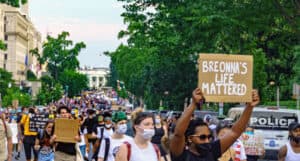
The Impact of George Floyd’s Murder on the Church
Presentation Given at December 1, 2021 Colloquium Part of Educating Urban Ministers in Philadelphia After 2020 project Presentation Question: How did the murder of George
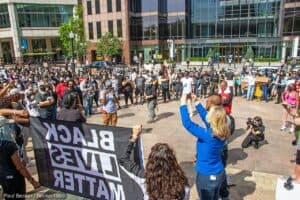
Response: The Impact of George Floyd’s Murder on the Church
Response to Kimberlee A. Johnson’s Presentation at December 1, 2021 Colloquium Part of Educating Urban Ministers in Philadelphia After 2020 project The murder of George
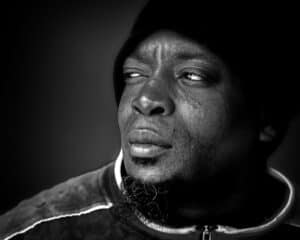
Racial Ramifications of 2020
Focus Group Report Given at December 1, 2021 Colloquium Part of Educating Urban Ministers in Philadelphia After 2020 project Background The purpose of this focus

How 2020 Affected Women in the Church
Focus Group Report Given at December 1, 2021 Colloquium Part of Educating Urban Ministers in Philadelphia After 2020 project Our focus group took place on

Localized Incarnational Ministry After 2020
Presentation Given at March 2, 2022 Colloquium Part of Educating Urban Ministers in Philadelphia After 2020 project Presentation Question: What does localized incarnational ministry, contextualized

Response: Localized Incarnational Ministry After 2020
Response to Carlos Worthy’s Presentation at March 2, 2022 Colloquium Part of Educating Urban Ministers in Philadelphia After 2020 project Presentation Question: What does localized

Youth Ministry after COVID-19
Focus Group Report Given at March 2, 2022 Colloquium Part of Educating Urban Ministers in Philadelphia After 2020 project Background The purpose of this focus

Hispanic Churches After 2020
Focus Group Report Given at March 2, 2022 Colloquium Part of Educating Urban Ministers in Philadelphia After 2020 project We had ten participants confirmed for

How Lives Changed for Pastors After 2020
Focus Group Report Given at March 2, 2022 Colloquium Part of Educating Urban Ministers in Philadelphia After 2020 project The focus group on “How Life

Renewed Relevance of Theological Resources
Presentation Given at May 4, 2022 Colloquium Part of Educating Urban Ministers in Philadelphia After 2020 project Presentation Question: What are the theological resources that

Response: Renewed Relevance of Theological Resources
Response to R. Todd Mangum’s Presentation at May 4, 2022 Colloquium Part of Educating Urban Ministers in Philadelphia After 2020 project Presentation Question: What are

Mental Health Needs of Urban Communities
Presentation Given at May 4, 2022 Colloquium Part of Educating Urban Ministers in Philadelphia After 2020 project Presentation Question: What are the mental health needs

Response: Mental Health Needs of Urban Communities
Response to Desiree Guyton’s Presentation at May 4, 2022 Colloquium Part of Educating Urban Ministers in Philadelphia After 2020 project Presentation Question: What are the

Development and Shifting of Urban Culture
Presentation Given at May 4, 2022 Colloquium Part of Educating Urban Ministers in Philadelphia After 2020 project Presentation Question: How has the urban culture, in

New Shape of Ministry Leadership and Innovations in Ministry
Presentation Given at May 4, 2022 Colloquium Part of Educating Urban Ministers in Philadelphia After 2020 project Presentation Question: What new shape of ministry leadership

Response: New Shape of Ministry Leadership and Innovations in Ministry
Response to J.R. Briggs’s Presentation at May 4, 2022 Colloquium Part of Educating Urban Ministers in Philadelphia After 2020 project Presentation Question: What new shape

Seminary Life and the Future of Theological Education in Philadelphia from the Student Perspective
Focus Group Report Given at May 4, 2022 Colloquium Part of Educating Urban Ministers in Philadelphia After 2020 project The focus group consisted of current

Merging Our Missional Silos: A Redemptive Opportunity in the Climate Crisis
The growing climate crisis hangs like a dark shadow over our collective planetary future. We can hear the rumblings of the storm, and its winds

Mending Fences: Viewing Set Theory Through a “Both/And” Lens
The young pastor took the Ted-X stage with confidence. His well-thought-out points and stories crafted and chosen in such a manner as to drive home

Missional Identity Development in Urban Christians
The Need for Missional Christians in Urban Areas It ended up being one of the worst meals of my life. Mark, a friend who helped

The Role of Faith in Addressing Gun Violence: A Change of Perspective
The Initial Victory In 2009, on a bitterly cold January afternoon, I joined eleven others in a civil disobedience action against a gun shop in
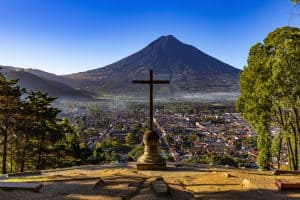
Creating Thirdspaces in the Time of COVID
Introduction The pandemic that hit our world in 2019 changed our lives, our cities, and our countries. Our lives have been broken by the loss

#ChurchToo Through the Lens of Trauma
On November 21, 2017, Emily Joy Allison typed out and tweeted her truth. Approximately ten years prior, a man who served as a volunteer and

The Gospel Versus Patriarchy: Ruth and Esther Have Something to Say
Of the sixty-six books in the Bible, thirty-eight are named for men. Only two are named for women—Ruth and Esther. Both stories put male power
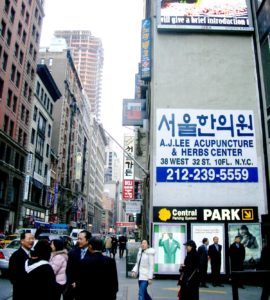
Healing from the Bitter Past: A New Way Forward for the Korean American Church
Photo: Chesiyuan at the English-language Wikipedia The Painful History I cleared my voice before I greeted my pastor friend on the phone and said, “I’m

Mentoring: Raising Up Leaders for the Harvest
Leaders are greatly needed for the God-given mission of the church. Jesus gave this charge to his disciples on the occasion of his ascension into

Reflections on Parenting and Teaching in the City
One of the most prevalent myths surrounding poor communities the world over, when viewed from the outside, is that parents do not care as much

Global Shifts & Practical Implications for Mission
(Originally presented at Christian Scholars Conference 2018, Lipscomb University) In the history of humankind on this planet, the idea of change should not be a

Prison Education and the Church
Philosophy. Oral Rhetoric. Christian Formation. Business. Biology. These are among the many subjects studied by incarcerated college students. Behind barbed wire, concrete walls, and steel

Restorative vs. Retributive Justice and the Implications for Public Life
Restorative Justice vs. Retributive Justice: Definitions and Illustrations My daughter – then a 3rd grader – came out of school crying. Her teacher explained to me

The U.S. Church and Youth: Incarceration or Restoration?
Behold, children are a gift from the LORD; they are a reward from him. (Proverbs 127:3, NIV) Two 17-year-old youth, arguing. A crime is committed.
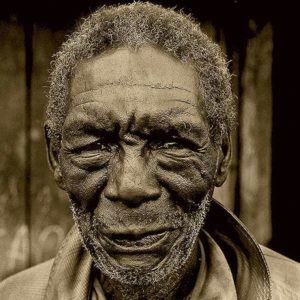
Taking the Narrow Gate: How Lament Shapes Multicultural Ministry and Discipleship
A narrow gate is more difficult to pass through than a wide gate. So why take the narrow gate? Christ once charged his disciples with these words: “Enter through the narrow gate; for the gate is wide and the road is easy that leads to destruction, and there are many who take it. For the gate is narrow and the road is hard that leads to life, and there are few who find it.”
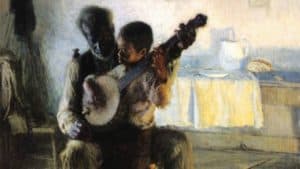
Traits Of Effective Urban Disciplers: A Pauline Perspective
Urban discipleship is less program driven than people driven. What are the characteristics of effective urban disciplers, according to the Apostle Pau?

Restoring Shalom in the Citadels of Dead Capital: The Church and Vacant Land
In Jeremiah 32, the prophet Jeremiah enters into a land deal with his cousin Hanamel in one of the worst real estate markets imaginable. Does his prophetic economic activity open up new horizons of possibilities for Christian disciples today in the face of urban blight and seemingly dead economic potential in many urban neighborhoods?

The Outsiders and Their Role in Urban Mission
The prevailing model of urban mission has been one of dependence on Outsiders who seemingly bring needed resources–money, education, connections to outside communities. Has this model brought about more harm than good? Is there a better way forward for ministry in the inner city? And what is the proper role for Outsiders in a such a vision?

Pilgrims and Place: Reflections on Geography and Theology
Contemporary evangelical theology and missionary practice of the urban church are sorely in need of a solid theology of place. The author looks to the biblical narrative for guidance, and finds a pilgrim church called out and sent back to the world on God’s mission as redemptive agents to specific places and concrete contexts.
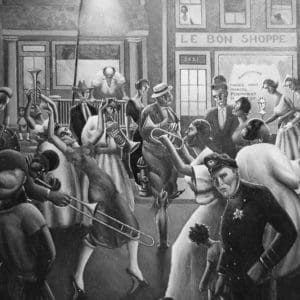
Identity Satisfaction in a World of Cultural Dissonance
This article will address (1) how mentors may biblically affirm a disciple’s physical cultural differences within a dominant culture’s message that there is something inherently flawed in his or her design, (2) how theology addresses a body/spirit symbiosis relevant to identity dissonance, and (3) how mentors may move a disciple from identity dissonance to identity satisfaction through a holistic application of Scripture.

Urban Pessimism and the Gospel of Hope
Why should contexts of urban poverty so often be perceived as alien territory for the people of God, and hard places for the gospel? Through his experience in Kibera, a slum community in Nairobi, and through his reflection on the eschatological vision of Isaiah, the author discerns the Spirit of God at work in the burgeoning urban areas of poverty where many outsiders see little hope, and outlines a theological vision for the church’s missionary agenda there.

From Martha to Mary: A Church Planter’s Spiritual Journey
Church leaders can become consumed by activities, numbers, and plans. Indeed, such leaders are regularly held up in the professional ministry world as models for the rest to emulate. A church planter in South Philadelphia took a different direction–often against his own wishes–and he shares his journey from activity to inactivity, from busyness to stillness, and from being a Martha to becoming a Mary.

Transcending Borders: Cities as Nodes for Transnational Evangelism
Migration and mission are often woven together as key themes throughout Scripture. As migration continues in an increasingly global society, contemporary cities are emerging as nodes of transnational social networks, and urban missionaries face new opportunities to contextualize evangelism and church planting. This article highlights these emerging opportunities, offers concrete examples of ministries that are aligning themselves with these new realities, and identifies some key principles and practices for transnational evangelism in global cities.
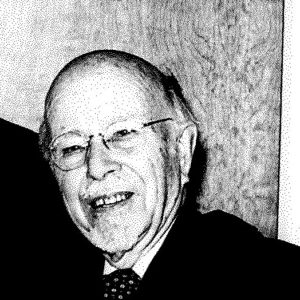
Donald A. McGavran’s Advice to Urban Church Planters
What would the late Donald A. McGavran, founder of the Church Growth School of Missions, say to today’s crop of church planters burgeoning around the world? The author imagines six kernels of advice McGavran would pass along.

Church After Christendom: A Gospel-Centered Proposal for Post-Christian Mission
How does the Western Church proclaim the gospel to a post-Christian world that does not care about its message? The Church must speak with confidence the authority of Christian scripture, despite the temptation for scriptural relativism. As an alternative to the idolatrous individualism perpetuated in the West, the Church must provide a visible testimony of authentic community. And the Church must adopt a missional identity in which every church member is recognized as an agent of gospel mission. The world is changing, but the Church can make a difference with a renewed, gospel-centered heart.

Missional Reunion
“Theological hospitality”–the practice of welcoming other Christians whose understanding of scripture and theology may seem strange or challenging–is a way for the church to pursue unity among theological diversity. Instead of an “us versus them” mentality, the church should expand its “gene pool” of theology, culture, and ethnicity. While it is not a strategy of theological minimalism or compromise, practicing theological hospitality reflects God’s heart to care for one another and avoids a combative style of orthodoxy.
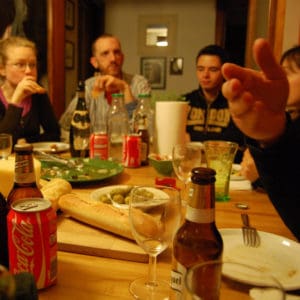
Discipleship in Community
Modern Western evangelicalism is experiencing a crisis of discipleship and gospel witness because of its perception of spiritual maturity in almost exclusively individualistic terms. The Scriptures, however, conceive of spirituality and growth in corporate terms. The leader’s role, then, is not to disciple a select few, but to create a culture of mutual discipleship, resulting in communities of genuine grace and repentance. Western churches need to recapture this community approach to discipleship to combat the crisis.
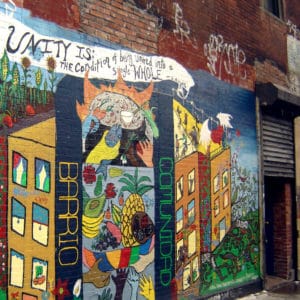
Bringing Shalom to the Community Table: Community Development as an Act of Ministry
Church-based community organizations often struggle with navigating partnerships in their communities, as they sit at the pluralistic community “table” in order to serve the poor and faithfully proclaim the gospel without compromising their Christian witness. What community issues can Christian organizations agree to work on with others in the community in order to bring honor to God’s kingdom? How exactly will they bear witness to the gospel so as not to be seen merely as one group among many committed to social transformation? This study offers some theological guidelines.
